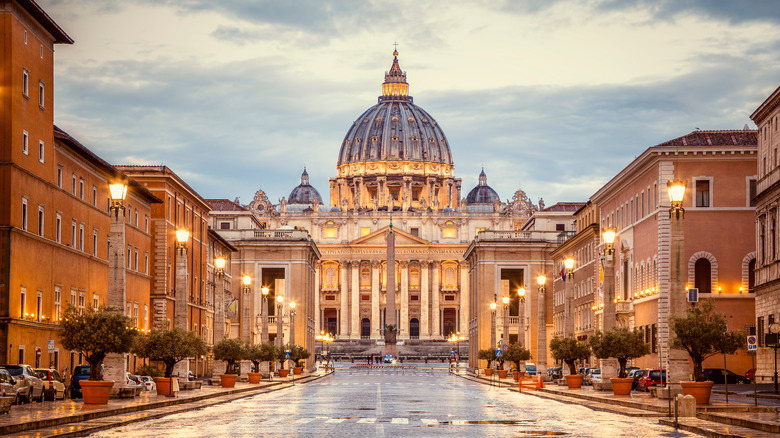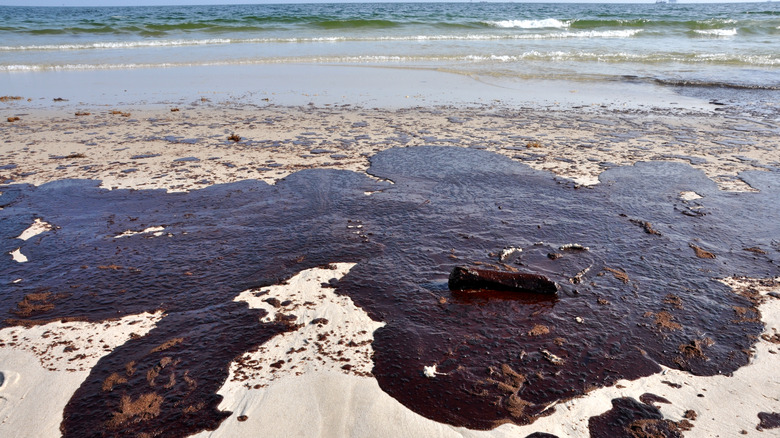The Vatican's Economy Explained
We may receive a commission on purchases made from links.
The Vatican is the world's smallest country. According to The Fact Life, it was formed in 1929 via the signing of the Lateran Treaty between Italy (i.e., Benito Mussolini) and the Holy See, the Vatican's governing body. As Smithsonian Magazine notes, the Catholic Church made a ton of money by ransacking New World coffers some 500 years ago. But after centuries of running its economy by means of violent colonization, forced conversions, and good old fashioned theft, the Church in the 20th century was forced to find a new way to fund its growth and extensive network of hidden sex offenders (via The Guardian).
So if it can't go around stealing all the New World's gold anymore, just how does the Vatican make money? Well, if you've ever stopped by to check out the Sistine Chapel or the Vatican Museums, you'll know that Vatican City does get some revenue from admission fees, saintly souvenirs, postage stamps, and other faith-based products. But according to Nasdaq, the Vatican has so much money that no one even actually knows how much. The Vatican bank owns hundreds of millions of dollars in equity and keeps more than $20 million of gold locked up at Fort Knox, and it didn't put up such impressive numbers with gift shop revenues, that's for sure. Here's how the Vatican's economy really works.
The Vatican's questionable investments
As South African journalist Zubeida Jaffer has noted, the Vatican is the most powerful financial force on the planet. The Holy See has taken what Investopedia described as "buy and hold" positions on several companies that have shown steady long-term growth. Many of these companies don't have the cleanest of records. The Vatican invests in such inveterate polluters as Gulf Oil and Shell, as well as several banks with shady pasts, presents, and probably futures.
Writing about philosopher Avro Manhattan's 1983 book "The Vatican Billions," Jaffer quoted a popular Catholic priest, who said that "The Catholic Church must be the biggest corporation in the United States." That priest believed that the Vatican's assets and real estate holdings exceeded the combined holdings of such traditional giants as Standard Oil, U.S. Steel, and AT&T. Manhattan called the Catholic Church "the most formidable stockbroker in the world." The Vatican may have given up its classic pillaging template for accruing wealth, but it has found a way to continue being one of the most opulent organizations on Earth.

